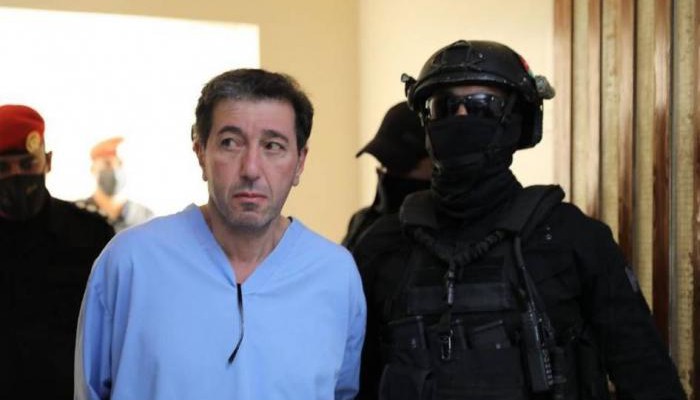Jordan’s ‘sedition’ case

More trouble will follow if the authorities don’t get serious about political reform and curbing corruption
On Monday, Jordan’s State Security Court handed down 15-year jail sentences to the two main defendants in the ‘sedition’ case that broke so dramatically in April: former royal court chief Bassam Awadallah and ruling family member Sharif Hassan Bin-Zaid.
But these rulings are unlikely to put the case to rest — and not only because the defendants’ lawyers are filing appeals against them. Many Jordanians do not see the tribunal as a legitimate court of law. They want more information about the evidence that led to the convictions. And they wonder why the central figure in the case, Prince Hamza Bin al-Hussein, evaded any accountability after he pledged allegiance to his half-brother King Abdullah II.
The reason the Jordanian authorities referred the case to a swift and secret military trial was to keep the proceedings under wraps. They did not want the public to hear the prosecution and defence cases nor the testimony of witnesses due to the extreme sensitivity of the affair. They hoped they could close the page on it with the minimum of losses and repercussions, whether domestic or international.
Some of the evidence presented to the court was leaked by the authorities to social media outlets. It indicated that Awadallah backed Hamza’s plans to exploit the economic crisis and growing popular discontent at worsening living conditions to achieve his ambition of becoming king, and advised on the use of social media for that purpose.
Several aspects of this case make it unprecedented and unlike any other in the hundred years of the Jordanian state’s existence.
First, it exposed the existence of a rift within the ruling family and a power-struggle between top-ranking princes.
Second, the involvement of regional powers, with fingers pointed especially at Saudi Arabia’s crown prince and de facto ruler Muhammad Bin-Salman, who employed Awadallah as an advisor.
Third, the attempted turning of tribal groups that form the bedrock of the Jordanian regime’s support base, to lure them into taking sides between rival wings of the Hashemite family and support the replacement of the reigning monarch.
The authorities handling of this ‘sedition’ crisis, as the official media refer to it, coupled with the level-headed response of a public that values the country’s stability, has succeeded in reducing its intensity. But it is not completely over. The embers are still burning beneath the ashes. Serious action is needed to prevent them from flaring up again at a difficult time for the country, amid meddling by regional powers that do not want a secure and stable Jordan but seek to settle historic regional scores and vendettas.
True, the king has formed a 92-member commission to propose reforms to the political system, headed by a former prime minister and drawn from across Jordan’s political and business elites and ethnic and tribal groups. But any verdict on the value of this move depends on two things: the level of freedom the commission is allowed; and the seriousness of the proposals it produces — to what extent they meet the Jordanian public’s demands for real reform, social justice, equitable wealth distribution, and the uprooting of corruption starting from the top: serving and former statesmen and their entourages.
Jordan’s real asset is security, stability and coexistence between all its component groups on an equal footing, under a regime that governs transparently with an independent judiciary and elected parliament that is truly representative and empowered to hold anyone without exception to account.
There are many negative aspects to this ‘sedition’, but it had the important positive result of shining light on many grievances and fundamental faults in the ruling regime: whether in the executive, legislature, or security apparatus.
These important issues are at the forefront of public concerns, and if they are not addressed promptly and effectively, this latest ‘sedition’ will end up spawning further, and more serious, ‘seditions’ in future.
 TheAltWorld
TheAltWorld 
Jean-Louis Desranleau
Nothing much has changed in these parts of the world with quasi absolute monacghy. So medieval, but then this also reduces the numbers of culprits. Immagine a 500 member parliament. lol